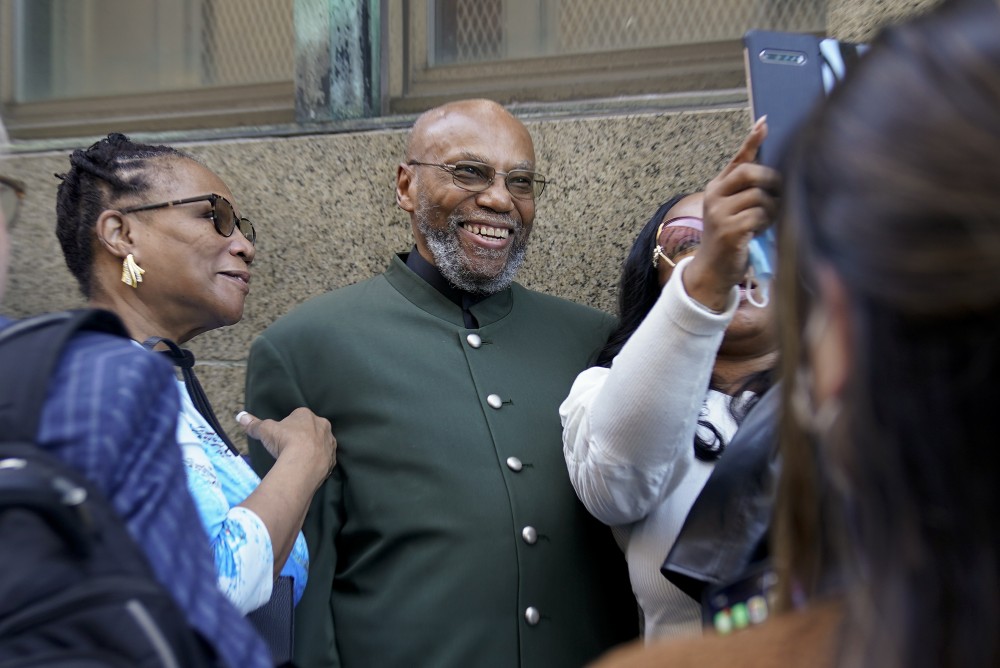Judge tosses convictions in killing of Malcolm X

More than half a century after the assassination of Malcolm X, two of his convicted killers were exonerated after decades of doubt about who was responsible for the civil rights icon’s death.
On November 18, Manhattan judge Ellen Biben dismissed the convictions of Muhammad Aziz and the late Khalil Islam after prosecutors and the men’s lawyers said a renewed investigation found new evidence that the men were not involved with the killing and determined that authorities withheld some of what they knew.
“The event that has brought us to court today should never have occurred,” Aziz told the court. “I am an 83-year-old man who was victimized by the criminal justice system.”
He and Islam, who maintained their innocence from the start in the 1965 killing at Upper Manhattan’s Audubon Ballroom, were paroled in the 1980s. Islam died in 2009.
Malcolm X gained national prominence as the voice of the Nation of Islam, exhorting Black people to claim their civil rights “by any means necessary.” Near the end of Malcolm X’s life, he split with the Black Muslim organization and, after a trip to Mecca, started speaking about the potential for racial unity. It earned him the ire of some in the Nation of Islam who saw him as a traitor.
Read our latest issue or browse back issues.
He was shot to death while beginning a speech on February 21, 1965. He was 39.
Aziz and Islam, then known as Norman 3X Butler and Thomas 15X Johnson, and a third man were convicted of murder in March 1966. They were sentenced to life in prison.
The third man, Mujahid Abdul Halim—also known as Talmadge X Hayer and Thomas Hagan—admitted to shooting Malcolm X but said neither Aziz nor Islam was involved. The two offered alibis, and no physical evidence linked them to the crime.
Halim was paroled in 2010. He identified some other men as accomplices, but no one else has ever been held accountable for the crime.
The reinvestigation found that the FBI and police hid evidence of Aziz’s and Islam’s innocence from prosecutors. Innocence Project cofounder Barry Scheck, one of the lawyers for Aziz and for Islam’s family, called it part of a plot to disrupt the Black civil rights movement.
“There is one ultimate conclusion: Mr. Aziz and Mr. Islam were wrongfully convicted of this crime,” and there is no prospect of retrying the 56-year-old case, said Manhattan district attorney Cyrus Vance Jr. He apologized for law enforcement’s “serious, unacceptable violations of law and the public trust.”
The NYPD and the FBI said that they had cooperated fully with the reinvestigation. NYPD Chief of Patrol Juanita Holmes said she felt for Malcolm X’s family and for Aziz and Islam “if we are responsible for withholding information.”
“I hope that we never revisit a scenario like this again,” she added.
Attorneys, scholars, and others have long raised questions about the convictions, and alternate theories and accusations have swirled around the case. After Netflix aired the documentary series Who Killed Malcolm X? early last year, Vance’s office said it was taking a fresh look at the case.
But the prospect is clouded by the passage of time. Every eyewitness who testified at the trial has died, and all the physical evidence—including a shotgun used in the killing—is gone, as are any phone records that might have existed, Vance said. —Associated Press





